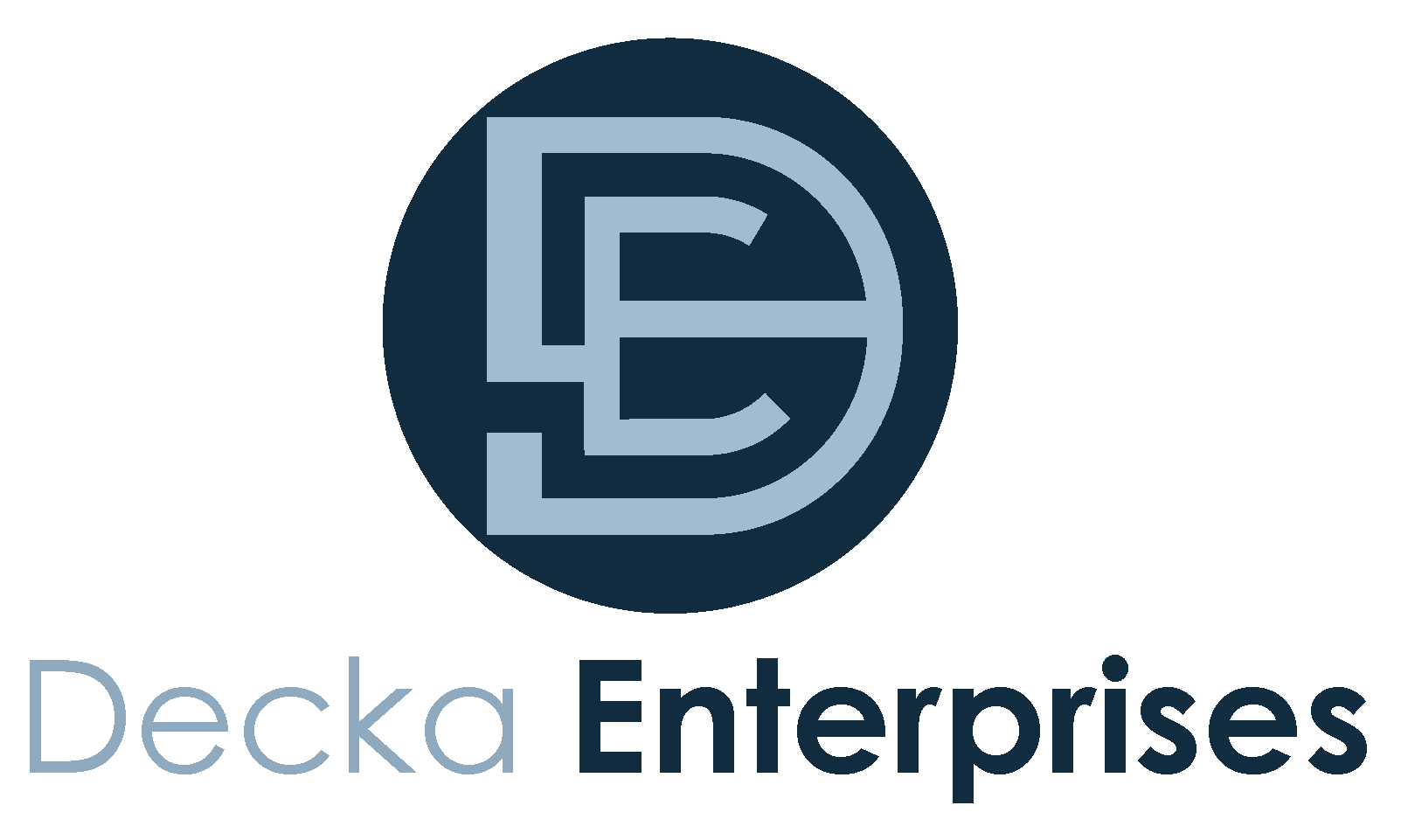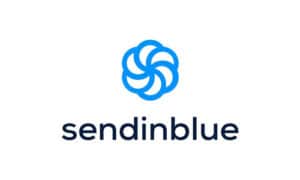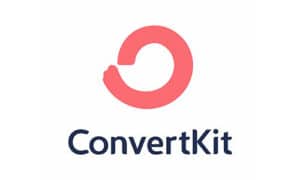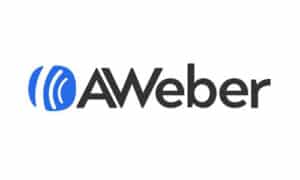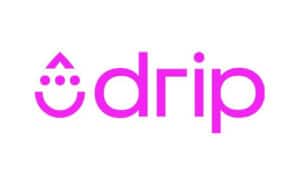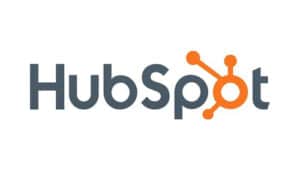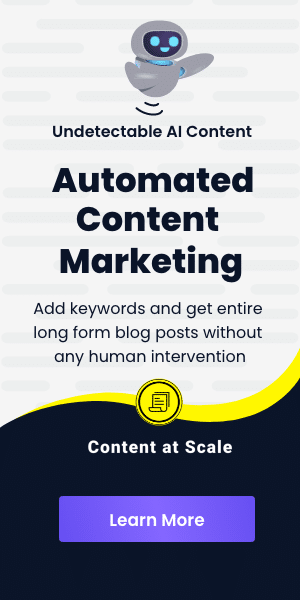This page uses affiliate links. When you click an affiliate link, we get a small compensation at no cost to you. See Affiliate Policy for more info.
You understand as a business owner how crucial email marketing is to connecting with your target market, fostering relationships, and increasing sales. One of the most popular email marketing platforms, Mailchimp, might not be the best option for you depending on your needs, finances, and other factors. We’ll introduce you to the top 7 Mailchimp alternatives in this article so you can advance your email marketing. At the end we will also provide our bonus email marketing pick and our favorites based on ease and affordability.
1. Sendinblue
An all-in-one email marketing platform, Sendinblue provides a variety of features, like email campaigns, SMS marketing, marketing automation, landing pages, signup forms, CRM, and more. With Sendinblue, you can create beautiful and responsive emails, segment your audience based on their behavior, and track your results in real-time. Sendinblue’s pricing is based on the number of emails you send per month, making it affordable for small businesses and scalable for larger ones.
Pricing: Starting at $25 per month with unlimited contacts and 20k emails per month.
Bonus: Sendinblue also has a free option that allows for 300 emails per day.
Pros
- Affordable pricing: Sendinblue offers affordable pricing plans for businesses of all sizes, making it a great option for small businesses or those on a tight budget.
- User-friendly interface: Sendinblue’s interface is intuitive and easy to use, making it a good option for beginners or those who are not as technically savvy.
- Advanced automation: Sendinblue offers powerful automation features that allow you to create complex workflows and trigger emails based on user behavior or other events.
- SMS marketing: Sendinblue allows you to send SMS messages in addition to emails, making it easy to reach your audience on multiple channels.
Cons
- Limited email templates: While Sendinblue offers some email templates, the platform’s template library is somewhat limited compared to other email marketing platforms.
- Limited integration: Sendinblue’s integration options are somewhat limited, which may make it difficult to connect with other tools or platforms that you use.
- Limited customer support: Sendinblue offers customer support, but there have been reports for slow response times or difficulty getting the help they need.
2. ConvertKit
ConvertKit is a powerful email marketing platform that is designed for creators, bloggers, and online businesses. With ConvertKit, you can create custom opt-in forms, landing pages, and sequences that help you convert your audience into subscribers and customers. ConvertKit also offers advanced features, such as tagging, automation, personalization, and integrations with other tools like WordPress, Shopify, and Zapier. ConvertKit’s pricing is based on the number of subscribers you have, making it a good fit for growing businesses that value engagement and conversion.
Pricing: Starting at $15 per month based on the number of contacts in your list.
Bonus: We have a link for a ConvertKit Free Trial where users can get a 14 day free trial (no credit card needed).
Pros
- Email automation: ConvertKit offers powerful automation features that allow you to create targeted workflows and trigger emails based on user behavior or other events.
- Customizable forms and landing pages: ConvertKit offers a variety of customizable opt-in forms and landing pages that allow you to capture leads and grow your email list.
- Visual automation builder: ConvertKit’s visual automation builder makes it easy to create and manage complex automation workflows.
- ConvertKit’s user interface is simple and intuitive, making it a great choice for beginners or those who prefer a more straightforward platform.
Cons
- Limited email design options: ConvertKit’s email editor offers limited design options and customization, which may not be sufficient for users who want more control over the look and feel of their emails.
- Limited reporting: ConvertKit’s reporting capabilities are somewhat limited, which may make it difficult to track and analyze the performance of your email campaigns.
- Limited A/B testing: ConvertKit offers limited A/B testing capabilities, which may make it difficult to optimize your email campaigns for maximum effectiveness.
3. ActiveCampaign
ActiveCampaign is an intelligent email marketing platform that combines email marketing, CRM, and sales automation into one seamless solution. With ActiveCampaign, you can create personalized and targeted emails, automate your follow-up sequences, and manage your contacts and deals in one place. ActiveCampaign also offers advanced features, such as machine learning, predictive sending, split testing, and integrations with other tools like Salesforce, Shopify, and Stripe. ActiveCampaign’s pricing is based on the number of contacts you have and the features you need, making it flexible and scalable for businesses of all sizes.
Pricing: Starting at $15 per month with our ActiveCampaign Lite – 500 Contacts plan.
Bonus: Purchase any one of our ActiveCampaign products of 50K contacts and above and receive 15% Off, check out the pricing table here.
Pros
- Advanced automation: ActiveCampaign offers powerful automation features that allow you to create complex workflows and trigger emails based on user behavior or other events.
- Deep segmentation: ActiveCampaign allows you to create targeted campaigns by segmenting your email list based on a variety of criteria, including behavior, demographics, and more.
- Dynamic content: ActiveCampaign’s dynamic content feature allows you to personalize your emails based on user behavior or other data, increasing engagement and conversion rates.
- Integrations: ActiveCampaign integrates seamlessly with a variety of other platforms and tools, including WordPress, Shopify, and Zapier.
Cons
- Steep learning curve: ActiveCampaign’s advanced features can be overwhelming for beginners, and the platform may require more time and effort to learn than other email marketing platforms.
- Limited email templates: While ActiveCampaign offers some email templates, the platform’s template library is somewhat limited compared to other email marketing platforms.
- Price: ActiveCampaign can be expensive, especially for small businesses with limited budgets. Prices depend on the features you need and the quantity of contacts you have, so expenses can add up quickly.
4. Constant Contact
Constant Contact is a user-friendly email marketing platform that offers a drag-and-drop editor, customizable templates, and automation workflows. With Constant Contact, you can create professional-looking emails, manage your contact list, and track your performance metrics. Constant Contact also offers additional features, such as event management, social media sharing, and surveys. Small businesses and non-profits can afford Constant Contact because its pricing is determined by the quantity of contacts you have.
Pricing: $20 per month, find more details here.
Service: If you need a fully managed email marketing campaign using Constant Contact, check out our Do it For Me Solution with Constant Contact today.
Pros
- User-friendly: Constant Contact is known for its ease of use, making it a great option for beginners or those who are not as technically savvy.
- Email templates: Constant Contact offers a variety of professionally designed email templates that can be easily customized to fit your brand and message.
- Social media integration: Constant Contact allows you to connect your email campaigns to your social media profiles, making it easy to share your content with a wider audience.
- Marketing automation: Constant Contact offers automation features that allow you to set up targeted campaigns and trigger emails based on user behavior.
Cons
- Limited customization: While Constant Contact offers a variety of email templates, customization options are somewhat limited compared to other email marketing platforms.
- Limited automation triggers: While Constant Contact offers automation features, the platform’s automation triggers are somewhat limited compared to other email marketing platforms.
- Price: Constant Contact can be expensive, especially for small businesses with limited budgets. Pricing is based on the number of contacts you have and the features you need, so costs can quickly add up.
5. AWeber
AWeber is a reliable email marketing platform that has been around for over 20 years. With AWeber, you can create email campaigns, autoresponders, and landing pages that help you connect with your subscribers and grow your business. AWeber also offers features like segmentation, automation, and integrations with other tools like PayPal, WordPress, and Facebook. AWeber’s pricing is based on the number of subscribers you have, making it a good fit for businesses that value simplicity and support.
Pricing: Starting at $20 per month with unlimited subscribers and unlimited lists.
Bonus: Get Aweber Free with up to 500 subscribers.
Pros
- Robust automation: AWeber offers powerful automation features, including visual automation workflows, that allow you to create complex automated campaigns based on user behavior or other triggers.
- Extensive integrations: AWeber integrates with hundreds of other platforms and tools, including popular e-commerce platforms, landing page builders, and CRM software.
- Good customer support: AWeber offers excellent customer support, including phone, email, and chat support, as well as a comprehensive knowledge base.
- A/B testing: AWeber allows you to easily conduct A/B tests on your email campaigns to optimize performance and improve results.
Cons
- Limited design options: While AWeber offers a drag-and-drop email editor, the platform’s design options are somewhat limited compared to other email marketing platforms.
- Limited reporting: AWeber’s reporting and analytics features are somewhat limited compared to other email marketing platforms, which may make it difficult to get detailed insights into campaign performance.
- No free plan: AWeber does not offer a free plan, which may make it difficult for small businesses or those on a tight budget to use the platform.
6. Drip
Drip is an ecommerce-focused email marketing platform that offers powerful automation and personalization features. You can segment your audience based on their behavior, create targeted and behavior-based campaigns, track your revenue and return on investment (ROI), and more with Drip. Drip also offers integrations with popular ecommerce platforms like Shopify, WooCommerce, and Magento. Drip’s pricing is based on the number of subscribers you have, making it a good fit for online stores that want to maximize their sales and customer loyalty.
Pricing: Starting at $39 per month with up to 2,500 contacts and unlimited email sends.
Bonus: Drip offers a 14-day free trial to get you started here.
Pros
- Advanced automation: Drip offers powerful automation features that allow you to create complex automated campaigns based on user behavior or other triggers, including visual workflows and custom event tracking.
- Deep segmentation: Drip’s segmentation options are extensive, allowing you to target specific groups of subscribers with personalized content based on their behavior or other characteristics.
- Customizable workflows: Drip allows you to create custom workflows and triggers based on a variety of user actions and behaviors, giving you complete control over your email marketing campaigns.
- A/B testing: Drip allows you to easily conduct A/B tests on your email campaigns to optimize performance and improve results.
Cons
- Steep learning curve: Drip’s advanced features and customizable workflows may have a steeper learning curve than other email marketing platforms, which may make it difficult for some users to get started.
- Expensive pricing: Drip’s pricing plans can be more expensive than other email marketing platforms, especially for businesses with larger email lists.
- No free plan: Drip does not offer a free plan, which may make it difficult for small businesses or those on a tight budget to use the platform. However, they do provide a free trial to get a feel for the product.
7. GetResponse
GetResponse is an all-in-one email marketing platform that offers email marketing, automation, landing pages, webinars, and CRM. With GetResponse, you can create professional-looking emails, automate your workflows, and engage your audience with interactive content. GetResponse also offers integrations with popular tools like WordPress, Salesforce, and Google Analytics. GetResponse’s pricing is based on the number of subscribers you have, making it a good fit for businesses that want a comprehensive solution for their marketing needs.
Pricing: Starting at $19 per month for 1,000 contacts with an AI subject line generator.
Bonus: The GetResponse free plan has up to 500 contacts and 2,500 newsletters/mo.
Pros
- User-friendly interface: GetResponse has an intuitive and user-friendly interface that makes it easy to create and manage email campaigns, even for beginners.
- Marketing automation: GetResponse offers advanced automation features that allow you to create automated campaigns based on user behavior or other triggers, including visual workflows and abandoned cart recovery.
- Landing page builder: GetResponse has a powerful landing page builder that allows you to create high-converting landing pages without any coding skills.
- Affordable pricing: GetResponse’s pricing plans are competitive and affordable, especially for businesses with larger email lists.
Cons
- Limited customization: GetResponse’s email templates and design options are somewhat limited, which may make it difficult to create visually stunning email campaigns.
- Limited automation options: GetResponse’s automation features are not as advanced as some other email marketing platforms, which may limit the complexity of your automated campaigns.
- No free plan: GetResponse does not offer a free plan, which may make it difficult for small businesses or those on a tight budget to use the platform.
Mailchimp Alternatives Bonus Email Marketing Platform:
HubSpot
HubSpot is an all-in-one inbound marketing, sales, and customer service platform that also offers email marketing capabilities. With HubSpot, you can create personalized and targeted emails, segment your audience, and track your performance. HubSpot also offers features like automation, A/B testing, and integrations with popular tools like WordPress, Shopify, and Salesforce. HubSpot’s pricing is based on the features you need and the number of contacts you have, making it a good fit for businesses that want a comprehensive and customizable solution for their marketing needs.
Your audience’s needs and preferences can be catered to when using HubSpot’s email marketing platform to create and send emails. You can use HubSpot’s drag-and-drop editor to design beautiful emails, and then personalize them with dynamic content and personalization tokens.
In addition, HubSpot’s email marketing platform integrates seamlessly with the rest of the HubSpot platform, allowing you to create a unified and integrated customer experience. You can use HubSpot’s CRM to manage your contacts, track their interactions with your business, and analyze their behavior.
For companies looking to advance their email marketing, HubSpot’s email marketing platform is a strong and complete option. HubSpot can help you create effective and engaging email campaigns that generate results thanks to its cutting-edge features, seamless integration, and customizable pricing.
Pricing: Starting at $18 per month which includes 1,000 marketing contacts.
Bonus: HubSpot also has a Free Email Marketing option to test it out. As an additional bonus, you can get a HubSpot Free Trial of the complete CRM and Marketing Hub: Here
Pros
- All-in-one solution: HubSpot offers a complete suite of marketing, sales, and customer service tools, making it easy to manage your entire customer lifecycle in one place.
- Automation: HubSpot offers powerful automation features that allow you to create targeted workflows and trigger emails based on user behavior or other events.
- Integration: HubSpot easily integrates with a variety of other tools and platforms, such as Salesforce, Shopify, and WordPress, enabling you to build a consistent and integrated customer experience.
- Analytics: HubSpot offers detailed analytics and reporting that allow you to track your email performance, see which emails are generating the most engagement, and optimize your campaigns accordingly.
Cons
- Cost: HubSpot can be expensive, especially for small businesses with limited budgets.
- Complexity: HubSpot is a powerful and comprehensive platform, but it can also be complex and overwhelming, especially for users who are not familiar with marketing automation and CRM software.
- Learning curve: Due to its complexity, there is often a steep learning curve associated with using HubSpot. Users may need to invest significant time and effort in learning how to use the platform effectively.
Overall this list contains some of the best email marketing platforms out there and it is certainly hard to choose one depending on your specific needs. With that in mind we narrowed our favorites down to ConvertKit and HubSpot for the following reasons:
Price and Ease of Use: ConvertKit in our opinion provides the best bang for your buck as a content creator wanting to scale and engage quickly, to a small business wanting to automate and stay engaged with clients.
All-In-One Solution for Email Marketing: HubSpot while a bonus item on the list really dominates in its robust software arsenal. The pricing structure is a bit steep for small businesses looking to cut costs, but the availability of a CRM, Integration, with Email Marketing could easily remove other services to off-set the cost.
